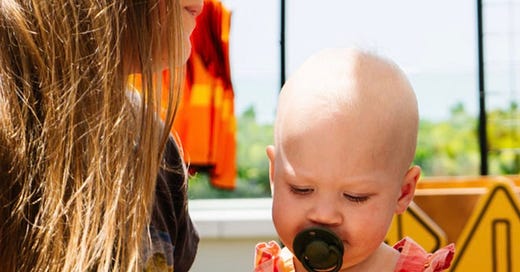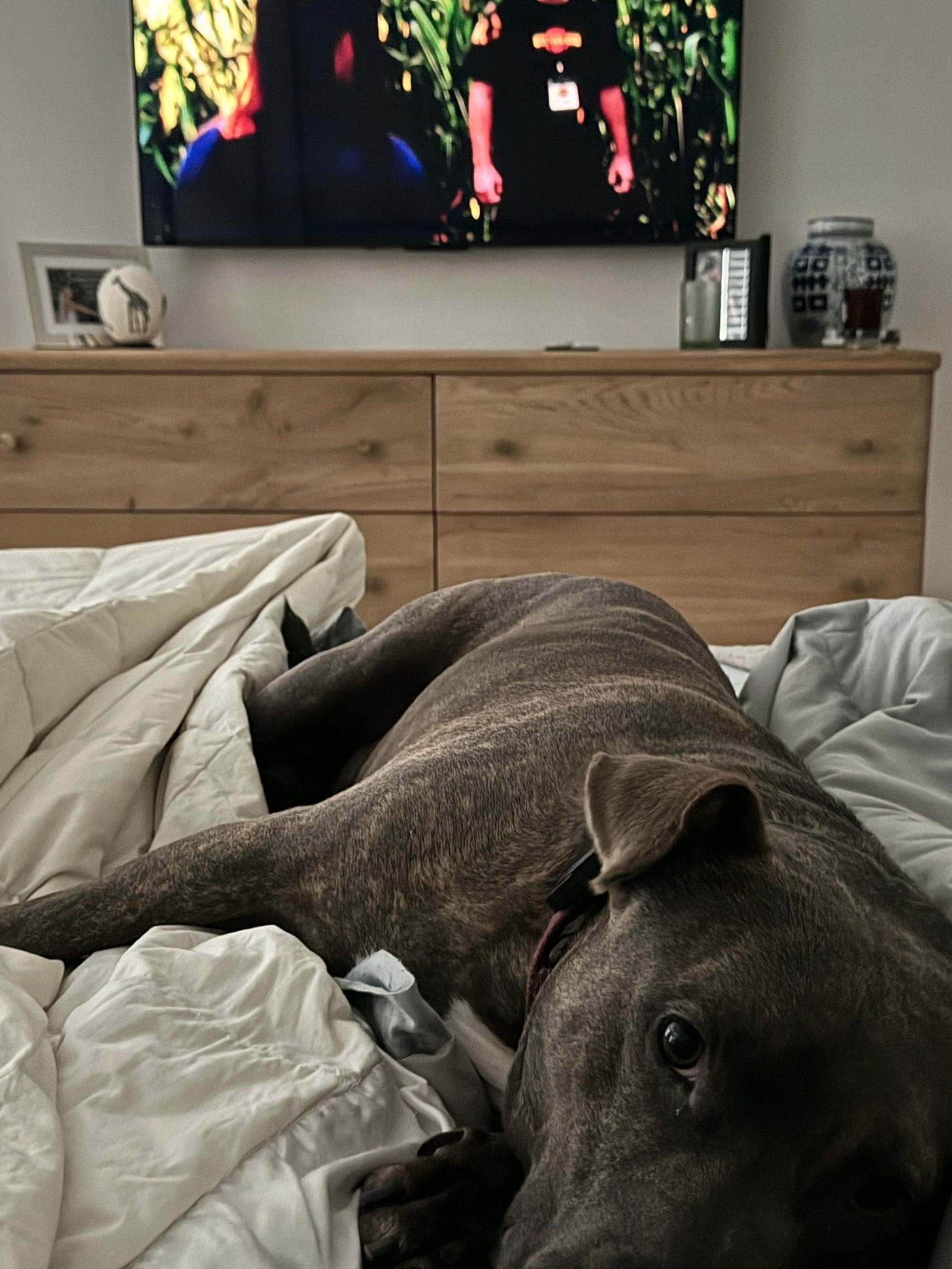Fence Sitter is a community for current or previous fence sitters. Writings by Amanda E. White a licensed therapist, previous fence sitter, current parent of one and done. I write to help bridge the gap between fence sitters and those that have taken the leap into parenting. I also have a monthly installment for paid subscribers where I answer their questions and help them get off the fence. If you’d like to read those or want me to answer your question, you can upgrade your subscription.
I took my 14 month old daughter to the beach last weekend and it was a bit of a disaster. Everything that could have gone wrong did. After driving for two hours to meet friends, we left after 25 minutes.
What’s interesting is if I wouldn’t have been so scared to have children for so long, it would be easy for me to share about how hard this was (which is true) and warn non parents or bond with current ones. I would say something like….
“What a disaster. She was cranky in the car because we got lost on the way. Upon arrive we discovered her bathing suit didn’t fit, (imagine a one year old with a wedgie and her diaper sticking out). She kept trying to run straight into the ocean, getting mad when we grabbed her hand or tried to stop her. She isn’t a great walker yet so every few steps she’d fall and then put her sandy hands in her mouth. It was extremely windy, so it was impossible to feed her on the beach. Her crackers and the wrappers and everything get blowing everywhere. She kept throwing her straw sippy cup in the sand, making it impossible to clean. We gave up after 25 minutes and went home when she had a full meltdown.”
If I would have seen myself do this a few years ago, my immediate thought would have been, “this seems horrible. Are you even enjoying parenthood?”
If you are a fence sitter, you may have had these thoughts as well. So I am here from the other side to tell you about my experience and perspective. However, I’ve seen thousands of stories of how hard parenting is. It was a huge reason I was on the fence for so long, and my guess is if you are still reading, you have too. Being honest about motherhood is critically important. There used to be no space to be honest about it and many moms were not prepared and felt misled. But when I was trying to make the decision, what I wanted was for someone to explain to me how even after having a miserable day at the beach, a parent doesn’t regret having kids or feel bitter.
I think fence sitters get so confused about how parents enjoy parenthood because the BEST moments with your kid rarely happen in public.
The best moments of parenting rarely happen in public.
Parenting in public is really hard. There are rules to follow. There are expectations to abide by. There are people you don’t want to disturb. There is actual danger you need to keep your child from. There is pressure to show you are a good parent and can make your child behave (just me?) Most environments are completely set up parents for parents and kids to fail.
So the next time you see parents who seem miserable in public, consider that this is not because they are miserable all the time. It may be just that taking their kids to a restaurant, beach or on a plane is difficult and stressful. And you don’t get to see those sweet, tender, incredible moments that make parenting worthwhile.
Not only do these moments often happen in private, they are also not always understandable to non-parents. I would sound like an insane person if I said the soft squeak of my daughter’s pacifier makes my heart flutter. Or how much joy I get from watching her kick her legs when she is excited about something. Or how it feels like time stops moving when I cuddle her and she places her hand on my chest and looks into my eyes.1
Some of the best times I have with my daughter are when my husband makes a particularly funny face that results in all three of us in a fit of uncontrollable laughter. But if my previous self asked me, “what are your favorite moments of parenting?” and I answered, “making funny faces,” she definitely would not have understood. She would have thought, “there is no way laughing with your kid makes up for all the crying!”
And I would be lying if I said my daughter laughed more than she cried. But her laughs mean more to me than how much her crying annoys me.
When I was trying to decide if I wanted to have kids, I made lots of pros and cons lists. The list of cons was always longer than the list of pros. But in the end, I discovered there was only one pro that mattered… I wanted to have a child despite my best logical arguments. Similarly, I think the reason parents seem miserable but have more kids and find it fulfilling is because their joy and fulfillment outweighs the sacrifice and struggle.
If you are struggling to decide whether you want to have kids, I encourage you to also create a pros and cons list. But also pay attention to how important certain pros and certain cons are. That is the key to helping you decide.
You may never be 100% sure about having kids. I was not. So I want to encourage you to instead aim for a majority stake. A bigger part of you either wants to have kids or does not. This is a big decision and it is unrealistic to expect yourself to be 100% confident and have no feelings of fear, sadness or grief.
As always I have no agenda about which side you choose. I am simply a parent and a therapist sharing my experience.
What do you think? I would love to hear from you!
Amanda
There was an incredible thread that went viral on twitter a few years ago discussing the joys of parenting and things to look forward to, discussed here https://www.today.com/parents/dads/dad-asks-twitter-parenting-joy-rcna75459







All of this rings so true. Parenting in public sucks. It’s so hard. Thank you for naming something that I didn’t quite know how to articulate! I tell friends who are on the fence about becoming parents that if the decision to have a child was a logical one, no one would choose to have one. It doesn’t make logical sense! They’re expensive, time consuming, demanding of all your energy, the list goes on. So it really comes down to something much more than that, which is different for every person.